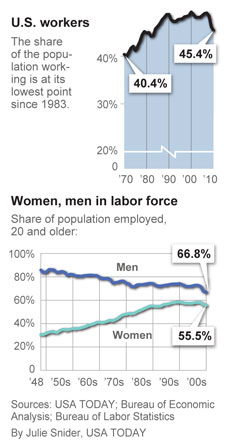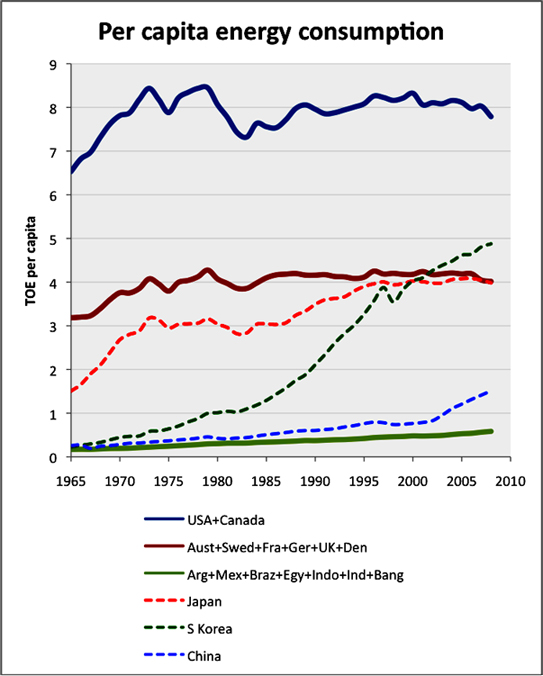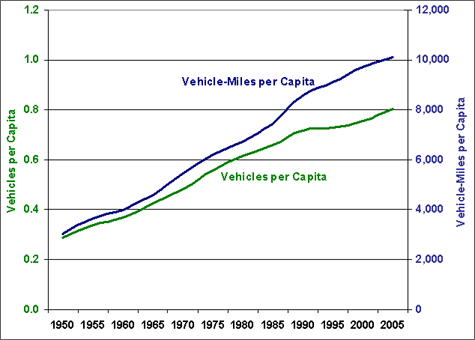Crude Supplies "Tumble"
Crude Supplies "Tumble"
Why are US crude supplies "tumbling"? Are the tankers broke" Did Saudi quit pumping? Maybe
Venezuela dosen't need the cash this week? Why such incindiary language?
On the other side of the coin, there is no hyperbole in describing the near-record stockpiles of
gasoline and diesel fuel. Why is that?
It is becoming very clear to me that the oil business is crooked and manipulated, right down to
the financial journalists. Pathetic, in a world on the brink.
http://finance.yahoo.com/news/Crude-oil ... et=&ccode=
Venezuela dosen't need the cash this week? Why such incindiary language?
On the other side of the coin, there is no hyperbole in describing the near-record stockpiles of
gasoline and diesel fuel. Why is that?
It is becoming very clear to me that the oil business is crooked and manipulated, right down to
the financial journalists. Pathetic, in a world on the brink.
http://finance.yahoo.com/news/Crude-oil ... et=&ccode=
- peeker01
- Permanently Banned
- Posts: 725
- Joined: Fri 24 Jun 2011, 18:19:54
Re: Crude Supplies "Tumble"
And oil reached $90 today ...
-

Daniel_Plainview - Prognosticator

- Posts: 4220
- Joined: Tue 06 May 2008, 03:00:00
- Location: 7035 Hollis ... Near the Observatory ... Just down the way, tucked back in the small woods
Re: Crude Supplies "Tumble"
According to the article, supplies are down 1.9% from a year ago and demand is down 2.9%.
I wonder which it is.. is supply down because demand is down, or is supply falling off due to peak oil / Libya and demand is just down because of prices and the recession?
Anyway, these are big numbers, 1.9% falloff in a year is a lot.
I wonder which it is.. is supply down because demand is down, or is supply falling off due to peak oil / Libya and demand is just down because of prices and the recession?
Anyway, these are big numbers, 1.9% falloff in a year is a lot.
-

Sixstrings - Fusion

- Posts: 15160
- Joined: Tue 08 Jul 2008, 03:00:00
Re: Crude Supplies "Tumble"
Who can tell with this quality of reporting? If supply has tumbled, then demand has collapsed.
- peeker01
- Permanently Banned
- Posts: 725
- Joined: Fri 24 Jun 2011, 18:19:54
Re: Crude Supplies "Tumble"
It's recession boys, plain as can be.
I still think the good ole GDP will be revised down (eventually) to show we are already well into the recession of 2011...
Double dip recession of '07...
21st Century Depression...
End of the Oil Age.
I still think the good ole GDP will be revised down (eventually) to show we are already well into the recession of 2011...
Double dip recession of '07...
21st Century Depression...
End of the Oil Age.
The legitimate object of government, is to do for a community of people, whatever they need to have done, but can not do, at all, or can not, so well do, for themselves -- in their separate, and individual capacities.
-- Abraham Lincoln, Fragment on Government (July 1, 1854)
-- Abraham Lincoln, Fragment on Government (July 1, 1854)
-

Pops - Elite

- Posts: 19746
- Joined: Sat 03 Apr 2004, 04:00:00
- Location: QuikSac for a 6-Pac
Re: Crude Supplies "Tumble"
Ok Pop's, it's nothing to do with 10 percent ethanol in every gallon of gasoline. Nothing to do with
new jet engines. Nothing to do with CAFE mileage requirements. Nothing to do with increased
rail usage. Nothing to do with CNG, LNG, Propane usage. Nothing to do with electric cars. Nothing
to do with telecommuting and teleconferencing. Or the failure of the post office, or the onrushing
digital world. Can't possibly be the total exclusion of oil from electricity production either.
It's all peak oil, right? No compromise, no concessions, all peak oil. Right as always Pops.
Ok, now ban me for another week.......I'm ready.
new jet engines. Nothing to do with CAFE mileage requirements. Nothing to do with increased
rail usage. Nothing to do with CNG, LNG, Propane usage. Nothing to do with electric cars. Nothing
to do with telecommuting and teleconferencing. Or the failure of the post office, or the onrushing
digital world. Can't possibly be the total exclusion of oil from electricity production either.
It's all peak oil, right? No compromise, no concessions, all peak oil. Right as always Pops.
Ok, now ban me for another week.......I'm ready.
- peeker01
- Permanently Banned
- Posts: 725
- Joined: Fri 24 Jun 2011, 18:19:54
Re: Crude Supplies "Tumble"
No, if the economy were good and gas prices low we would be continuing to use an increasing amount per capita and in total just as we always have - regardless of conservation and lowering energy "intensity".
Consumption is down because prices are up (yep PO) but mostly because people are out of a job...

BTW, we've never banned anyone for being ill-informed.
Consumption is down because prices are up (yep PO) but mostly because people are out of a job...

Only 45.4% of Americans had jobs in 2010, the lowest rate since 1983 and down from a peak of 49.3% in 2000. Last year, just 66.8% of men had jobs, the lowest on record.
BTW, we've never banned anyone for being ill-informed.
The legitimate object of government, is to do for a community of people, whatever they need to have done, but can not do, at all, or can not, so well do, for themselves -- in their separate, and individual capacities.
-- Abraham Lincoln, Fragment on Government (July 1, 1854)
-- Abraham Lincoln, Fragment on Government (July 1, 1854)
-

Pops - Elite

- Posts: 19746
- Joined: Sat 03 Apr 2004, 04:00:00
- Location: QuikSac for a 6-Pac
Re: Crude Supplies "Tumble"
"No, if the economy were good and gas prices low....." What kind of argument is that? That's
equivalent to saying "If the economy were good, then the economy would be good".
People teleconference, telecommute, burn LNG, drive little hybrids, conserve, convert from fuel
oil to NG for home heating, etc, etc, etc because petroleum is way too expensive and at times
artificially scarce.
The contrived shortages and high prices are one of the main causes of the recession. The demand shortfall is the fault of the oil industry, and it will get worse if commodity prices aren't returned to
oil products.
We may see peak oil in the future, but now you are witnessing peak demand.
equivalent to saying "If the economy were good, then the economy would be good".
People teleconference, telecommute, burn LNG, drive little hybrids, conserve, convert from fuel
oil to NG for home heating, etc, etc, etc because petroleum is way too expensive and at times
artificially scarce.
The contrived shortages and high prices are one of the main causes of the recession. The demand shortfall is the fault of the oil industry, and it will get worse if commodity prices aren't returned to
oil products.
We may see peak oil in the future, but now you are witnessing peak demand.
- peeker01
- Permanently Banned
- Posts: 725
- Joined: Fri 24 Jun 2011, 18:19:54
Re: Crude Supplies "Tumble"
That's not what the chart you posted in the energy intensity thread shows. It shows the US and Europe having a lower per capita energy consumption. There was an extensive study on this that found Jevon's paradox generally does not happen for mature systems. It does happen when a new disruptive technology is introduced such as steam engine, electric motor, developing nation replacing manual farming with a tractor, etc. But it generally does not happen for a mature system and non disruptive technology such as a more fuel efficient car, insulation for the house, etc.Pops wrote:No, if the economy were good and gas prices low we would be continuing to use an increasing amount per capita and in total just as we always have - regardless of conservation and lowering energy "intensity".
Just a few quick definitions:
K-B ‘hypothesis’ is roughly Jevon's paradox. "Rebound effects" are increased usage because of lower energy cost. "Backfire" is when a rebound effect is greater than 100% of the efficiency gain, ie, increased resource usage ends up using more total energy overall, despite gains in efficiency.
'Rebound Effects'Similarly, the empirical evidence for the postulate is indirect, suggestive and ambiguous. Since a number of flaws have been found with both the theoretical and empirical evidence, the K-B ‘hypothesis’ cannot be considered to have been verified.
There is no a priori reason to believe that ‘backfire’ is an inevitable outcome in all cases.
The K-B postulate seems more likely to hold for improvements associated with pervasive ‘general purpose technologies’, particularly when these are adopted by producers rather than final consumers and when the improvements occur at an early stage of development and diffusion. Steam engines provide a good illustration from the 19th-century, while electric motors provide a comparable illustration from the early 20th century.
In contrast, the K-B postulate seems less likely to hold for dedicated energy efficiency technologies such as thermal insulation, particularly when these are used by consumers or when they play a subsidiary role in economic production. These technologies have smaller effects on productivity and economic growth, with the result that economy-wide energy consumption is likely to be reduced.
Many energy efficiency opportunities are highly cost effective and will remain so even when rebound effects are allowed for.
The peak in conventional oil is what has caused the very peak demand you speak of. If oil were still $20 you would see demand continue to rise, not shift to all of the alternatives you speak of. I do not subscribe to the same theory you do that high oil prices are caused by the manipulations of evil speculators. I believe that high oil prices are caused by the higher extraction costs for unconventional oil. I believe that oil market manipulations do exist, but they only cause short term fluctuations in price, even thought such fluctuations may be quite large. However I believe that the long term trend of the price of oil is based on supply and demand fundamentals. You simply can't produce oil from these unconventional sources with the price of oil at $30 a barrel.peeker01 wrote:People teleconference, telecommute, burn LNG, drive little hybrids, conserve, convert from fuel oil to NG for home heating, etc, etc, etc because petroleum is way too expensive and at times artificially scarce. The contrived shortages and high prices are one of the main causes of the recession. The demand shortfall is the fault of the oil industry, and it will get worse if commodity prices aren't returned to oil products. We may see peak oil in the future, but now you are witnessing peak demand.
The oil barrel is half-full.
-

kublikhan - Master Prognosticator

- Posts: 5023
- Joined: Tue 06 Nov 2007, 04:00:00
- Location: Illinois
Re: Crude Supplies "Tumble"
kublikhan wrote:That's not what the chart you posted in the energy intensity thread shows. It shows the US and Europe having a lower per capita energy consumption.Pops wrote:No, if the economy were good and gas prices low we would be continuing to use an increasing amount per capita and in total just as we always have - regardless of conservation and lowering energy "intensity".
Here's that per capita chart, showing consumption increased until around 2000 sometime when oil prices began to increase. Not sure but that little drop looks like around the 2001 recession.

This one is total consumption and price from the BP 2011 report

Either way you look at it, as long as gas prices were below $50-60 we increased use, with oil prices over that, increase stopped and when the economy tanked and/or prices are past $80/bbl, use dropped.
I agree we are more technologically capable of using less energy, I'm just saying that given the 'ability to pay' we won't. That's the gist of the paradox to me and I think those couple of charts seem to bear that out.
But then I'm no economist, what am I missing?
P.S. I forgot to credit that first chart, it's from http://www.daytonos.com
The legitimate object of government, is to do for a community of people, whatever they need to have done, but can not do, at all, or can not, so well do, for themselves -- in their separate, and individual capacities.
-- Abraham Lincoln, Fragment on Government (July 1, 1854)
-- Abraham Lincoln, Fragment on Government (July 1, 1854)
-

Pops - Elite

- Posts: 19746
- Joined: Sat 03 Apr 2004, 04:00:00
- Location: QuikSac for a 6-Pac
Re: Crude Supplies "Tumble"
Well first off, you want to look at per capita energy consumption like in your first chart, not total consumption like in the last chart.
Second, I was talking about efficiency improvements not shifts in the price of oil. Efficiency improvements are only one of many factors in the price of oil.
Third, Jevon's paradox calls for increasing efficiency causing increase total energy use. But in the US, between 1991 and 2003 fuel economy standards were NOT increasing, they have been stagnant or falling. 20.7 mpg for 2 wheel drive light trucks, and 19.1 mpg for 4 wheel drive light trucks. Thus you cannot blame efficiency improvements for increase oil usage when there was no increase in efficiency! A far more likely cause of increase oil use was as you noted, low oil prices, not increased efficiency.
Look at this chart of fuel efficiency improvements. Between 1980 and 1991, fuel efficiency rapidly climbs. At the same time, overall fuel consumption drops. The exact opposite that Jevons paradox calls for. Then in 91 onward, fuel efficiency is either stagnant or dropping. Overall fuel use goes up. This is not Jevons paradox at work. This is low oil prices encouraging increasing consumption.

Fourth, the US pursued poor energy policy. Instead of encouraging increasing fuel efficiency, car makers started to tout LESS efficient SUV's, just to skirt what little fuel efficiency standards we did have. Europe pursed a far more sensible policy.
Second, I was talking about efficiency improvements not shifts in the price of oil. Efficiency improvements are only one of many factors in the price of oil.
Third, Jevon's paradox calls for increasing efficiency causing increase total energy use. But in the US, between 1991 and 2003 fuel economy standards were NOT increasing, they have been stagnant or falling. 20.7 mpg for 2 wheel drive light trucks, and 19.1 mpg for 4 wheel drive light trucks. Thus you cannot blame efficiency improvements for increase oil usage when there was no increase in efficiency! A far more likely cause of increase oil use was as you noted, low oil prices, not increased efficiency.
Look at this chart of fuel efficiency improvements. Between 1980 and 1991, fuel efficiency rapidly climbs. At the same time, overall fuel consumption drops. The exact opposite that Jevons paradox calls for. Then in 91 onward, fuel efficiency is either stagnant or dropping. Overall fuel use goes up. This is not Jevons paradox at work. This is low oil prices encouraging increasing consumption.

Fourth, the US pursued poor energy policy. Instead of encouraging increasing fuel efficiency, car makers started to tout LESS efficient SUV's, just to skirt what little fuel efficiency standards we did have. Europe pursed a far more sensible policy.
Slow Learner on Energy-Efficiency FrontThe United States, land of gas-guzzling S.U.V.'s and air-conditioned McMansions, might do well to turn to the country some Americans love to hate for lessons on how to curb its reliance on imported oil: France.
And like it or not, France - whose perceived diplomatic obstructionism in the run-up to the Iraq war provoked a boycott of French products by some Americans - has displayed a quality ripe for export: an impressive tenacity in waging what the French call the war on gaspi, short for gaspillage, or waste. It has also done so in a way that the United States has not been able to: over the long term.
In contrast to the United States, where oil consumption initially fell but then ended up rising by a total of 16 percent from 1973 to 2003, in France, despite some increase in recent years, oil use is still 10 percent lower today than it was three decades ago, according to the United States Energy Information Administration. (Germany also matched France’s record.)
"Americans have completely abandoned their efforts at energy conservation over the past decade and have been incredibly care-free about oil consumption because they believed they would get access to cheap energy - through force if necessary,"
The contrast between French resolve and American abandon in recent years is sharp. The United States, too, took the high road in the 1970's and early 80's, when the combined impact of the 1973 oil embargo, the growing power of OPEC and the Iranian revolution of 1979 created long gas lines and raised the prospect of an oil producers' stranglehold over the American economy.
Americans responded with a nationwide speed limit of 55 miles an hour, a home-insulating boom and a blossoming of energy-technology start-ups to help businesses cut their energy bills. Vast improvements came in home appliances: refrigerators, for example, now consume a third of the energy needed 30 years ago.
But slowly, the nation resumed old habits. By the late 1980's, with the economy booming and oil prices below $20 a barrel, gas guzzlers were back, cars raced along highways at 75 m.p.h. with impunity and new vehicles' average mileage per gallon, which had almost doubled to 27.5 in 1987 from 14 in 1972, slipped back to 24, compared with Europe's 36.
The oil barrel is half-full.
-

kublikhan - Master Prognosticator

- Posts: 5023
- Joined: Tue 06 Nov 2007, 04:00:00
- Location: Illinois
Re: Crude Supplies "Tumble"
I think whenever there is uncertainty about supply, the tanks get filled up.peeker01 wrote:Who can tell with this quality of reporting? If supply has tumbled, then demand has collapsed.
Companies buy futures contracts to assure supplies, and whoever has the other side of the contract has to make sure the oil is there.
Facebook knows you're a dog.
-

Keith_McClary - Light Sweet Crude

- Posts: 7344
- Joined: Wed 21 Jul 2004, 03:00:00
- Location: Suburban tar sands
Re: Crude Supplies "Tumble"
I thought we (The USA) are tapping the SPR or am I way off base in that observation?
- ColossalContrarian
- Heavy Crude

- Posts: 1374
- Joined: Tue 20 Jun 2006, 03:00:00
Re: Crude Supplies "Tumble"
It's hard to figure out what's going on. If we have a little shortage, maybe we can eat up some of that WTI and that will bring it's price back in line with Brent. We are at the largest difference between the two right now. It's over $20 difference. Brent used to be cheaper, but now whatever WTI is, it's selling for way less.
Deep in the mud and slime of things, even there, something sings.
-

Revi - Light Sweet Crude

- Posts: 7417
- Joined: Mon 25 Apr 2005, 03:00:00
- Location: Maine
Re: Crude Supplies "Tumble"
kublikhan wrote:
At the same time, overall fuel consumption drops.
Your green line is consumption per vehicle -
But vehicles per capita doubled:

Exactly as Jeavon's would predict - I'm kinda surprised actually, I'd forgotten this example. I mean that is the epitome of the paradox, the perfect example. Not only does per capita consumption rise but we buy another vehicle as well consuming even more energy!
And even looking at just the MPG, miles per vehicle began to rise dramatically right along with increasing MPG even though it had been only slightly for the 30 years prior, again, just as the paradox predicts.
In fact, consumption per vehicle only fell during the price shocks of the 70's but stayed flat all through the years of increasing MPG.
I'll split this off to the energy intensity thread in a bit...
The legitimate object of government, is to do for a community of people, whatever they need to have done, but can not do, at all, or can not, so well do, for themselves -- in their separate, and individual capacities.
-- Abraham Lincoln, Fragment on Government (July 1, 1854)
-- Abraham Lincoln, Fragment on Government (July 1, 1854)
-

Pops - Elite

- Posts: 19746
- Joined: Sat 03 Apr 2004, 04:00:00
- Location: QuikSac for a 6-Pac
Re: Crude Supplies "Tumble"
Peaker, this is the same kind of bad logic the creationist use in their rhetoric. You just vomited a bunch of poorly related points in the hope that the volume has proved something.peeker01 wrote:Ok Pop's, it's nothing to do with 10 percent ethanol in every gallon of gasoline. Nothing to do with
new jet engines. Nothing to do with CAFE mileage requirements. Nothing to do with increased
rail usage. Nothing to do with CNG, LNG, Propane usage. Nothing to do with electric cars. Nothing
to do with telecommuting and teleconferencing. Or the failure of the post office, or the onrushing
digital world. Can't possibly be the total exclusion of oil from electricity production either.
It's all peak oil, right? No compromise, no concessions, all peak oil. Right as always Pops.
Ok, now ban me for another week.......I'm ready.
Like your point here, it's overblown and maybe even a straw man argument. Peak Coal certainly is a Peak Oil issue, it's part of the worlds fungable energy portfolio. Though coal can't be expanded much for other uses. Everyone knows coal has never slowed in it's use for electricity production and the same for natural gas. However we have issues with peak coal, coal quality and we are having trouble expanding production like we have in the past. And as successful as natural gas has been, it is also having similar problems. Now we have to use fast depleting mining methods like fracking to continue getting gas. The fact that we have developed these methods are great, but these methods have a lower Energy Returned on Energy Invested (EROEI) and require a lot more wells. So we're running faster on the tredmill just to stay in place. So the issue you're attacking with rhetoric is that Peak Oil also refers to Peak Everything. But the truth is Peak Oil does refer to Peak Everything, it's all mining and one weak link in the chain weakens all the others.peeker01 wrote:Can't possibly be the total exclusion of oil from electricity production either.
I guess this means you've already got another account set up or a vacation scheduled.peeker01 wrote:Ok, now ban me for another week.......I'm ready.
"The multiplication force of technology on cognitive differences is massive." -Jordan Peterson
-

steam_cannon - Expert

- Posts: 2859
- Joined: Thu 28 Dec 2006, 04:00:00
- Location: MA
Re: Crude Supplies "Tumble"
Yeah. 1.9% sounds like a good slide to me.Sixstrings wrote:Anyway, these are big numbers, 1.9% falloff in a year is a lot.

"The multiplication force of technology on cognitive differences is massive." -Jordan Peterson
-

steam_cannon - Expert

- Posts: 2859
- Joined: Thu 28 Dec 2006, 04:00:00
- Location: MA
Re: Crude Supplies "Tumble"
kublikhan wrote:Third, Jevon's paradox calls for increasing efficiency causing increase total energy use. But in the US, between 1991 and 2003 fuel economy standards were NOT increasing, they have been stagnant or falling. 20.7 mpg for 2 wheel drive light trucks, and 19.1 mpg for 4 wheel drive light trucks. Thus you cannot blame efficiency improvements for increase oil usage when there was no increase in efficiency! A far more likely cause of increase oil use was as you noted, low oil prices, not increased efficiency.
Look at this chart of fuel efficiency improvements. Between 1980 and 1991, fuel efficiency rapidly climbs. At the same time, overall fuel consumption drops. The exact opposite that Jevons paradox calls for. Then in 91 onward, fuel efficiency is either stagnant or dropping. Overall fuel use goes up. This is not Jevons paradox at work. This is low oil prices encouraging increasing consumption.
Fourth, the US pursued poor energy policy. Instead of encouraging increasing fuel efficiency, car makers started to tout LESS efficient SUV's, just to skirt what little fuel efficiency standards we did have.
You're thinking of efficiency in the terms of "a geo metro is more efficient transportation than a ford explorer". This is true, but it ignores the very real efficiency gains in technology that have been incorporated into modern vehicles. In absence of a demand for vehicles to get higher MPG ,these gains have been put toward more powerful engines and heavier vehicles.
the 1980-91 period was a result of EPA fleet average MPG regs. Thats GOVERNMENT MANDATED efficiency, and it didn't take long for people to find a way around it. EPA regs did not get any stricter after 1991 and yes, SUV's were not subject to the same regs and their market share increased. Since 91' however, vehicles have gotten steadily more powerful and heavier, excepting the last couple of years(maybe)
Edit: I just wanted to add that those EPA regs were not really about fuel efficiency, but fuel economy, and were met in large part by a reduction in fleet average weight and power: Not by improving the fuel efficiency of the engines.
- The Practician
- Lignite

- Posts: 270
- Joined: Wed 20 Jul 2011, 22:08:02
Re: Crude Supplies "Tumble"
Not according to the energy per capita chart you posted. Our energy per capita consumption went down.Pops wrote:Exactly as Jeavon's would predict - I'm kinda surprised actually, I'd forgotten this example. I mean that is the epitome of the paradox, the perfect example. Not only does per capita consumption rise but we buy another vehicle as well consuming even more energy!
And even looking at just the MPG, miles per vehicle began to rise dramatically right along with increasing MPG even though it had been only slightly for the 30 years prior, again, just as the paradox predicts.
Which means Jevon's paradox had nothing to do with it. If efficiency is flat, it is not responsible for increasing energy consumption.Pops wrote:In fact, consumption per vehicle only fell during the price shocks of the 70's but stayed flat all through the years of increasing MPG.
Exactly my point. The US did not pursue a policy of fuel efficiency. The Europeans did. We are driving gas guzzling armoured tanks, they are driving fuel sipping ecoboxes.The Practician wrote:Edit: I just wanted to add that those EPA regs were not really about fuel efficiency, but fuel economy, and were met in large part by a reduction in fleet average weight and power: Not by improving the fuel efficiency of the engines.
The oil barrel is half-full.
-

kublikhan - Master Prognosticator

- Posts: 5023
- Joined: Tue 06 Nov 2007, 04:00:00
- Location: Illinois
Re: Crude Supplies "Tumble"
What about the iterative process of supply adjusting to demand? Supply is not only about finding it and pumping it out of the ground. It is also about marketing it. Somebody has to get paid for providing the space for your supplier to get their supplies. Those so called extortionist prices that fluctuate so much are probably more related to marketing than to exploration, but exploration will have its impact too. Isn't the whole price structure subject to modification in the face of economic as well as political and geological developments. Can we really know how that's going to play out ahead of time? Maybe the 'fat' isn't distributed where we think it is?
When it comes down to it, the people will always shout, "Free Barabbas." They love Barabbas. He's one of them. He has the same dreams. He does what they wish they could do. That other guy is more removed, more inscrutable. He makes them think. "Crucify him."
-

evilgenius - Intermediate Crude

- Posts: 3731
- Joined: Tue 06 Dec 2005, 04:00:00
- Location: Stopped at the Border.
25 posts
• Page 1 of 2 • 1, 2
Return to Open Topic Discussion
Who is online
Users browsing this forum: No registered users and 24 guests
